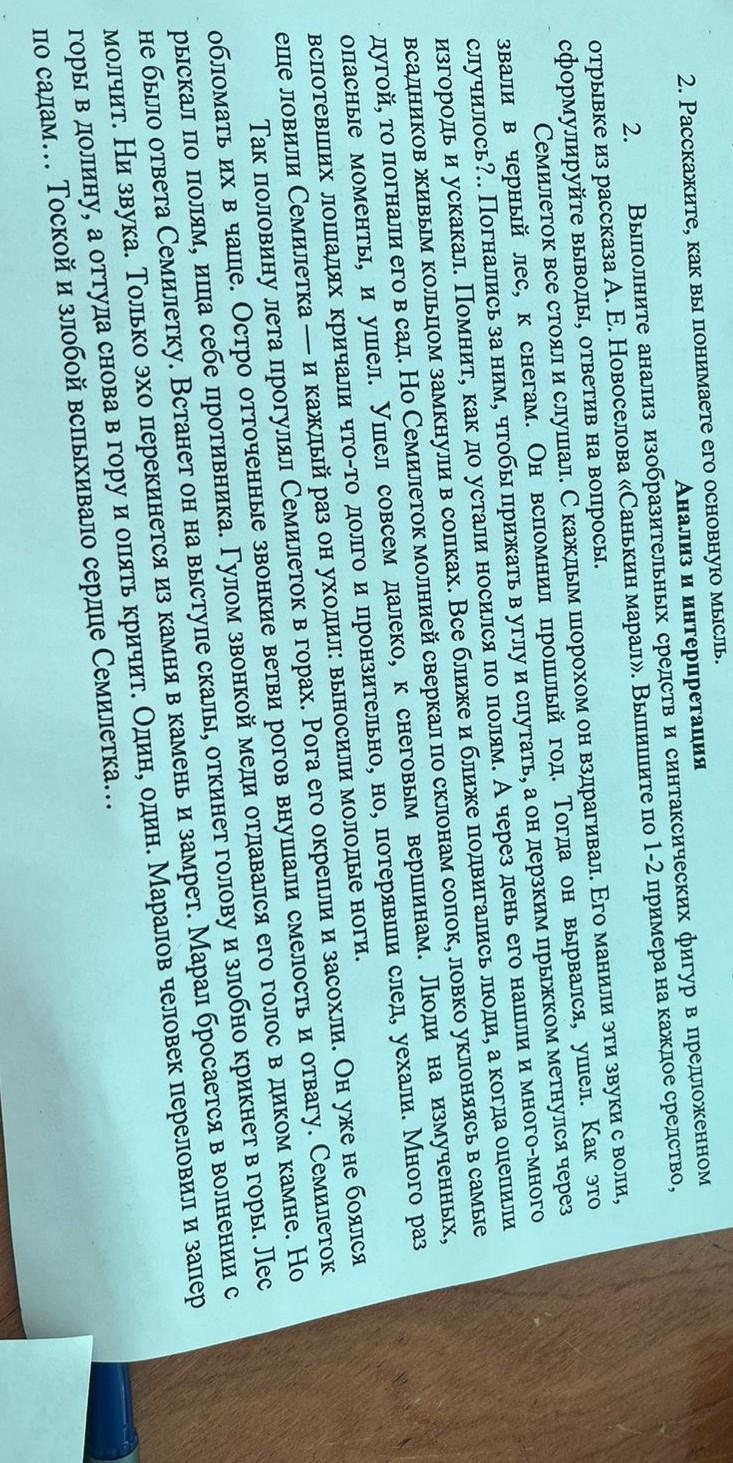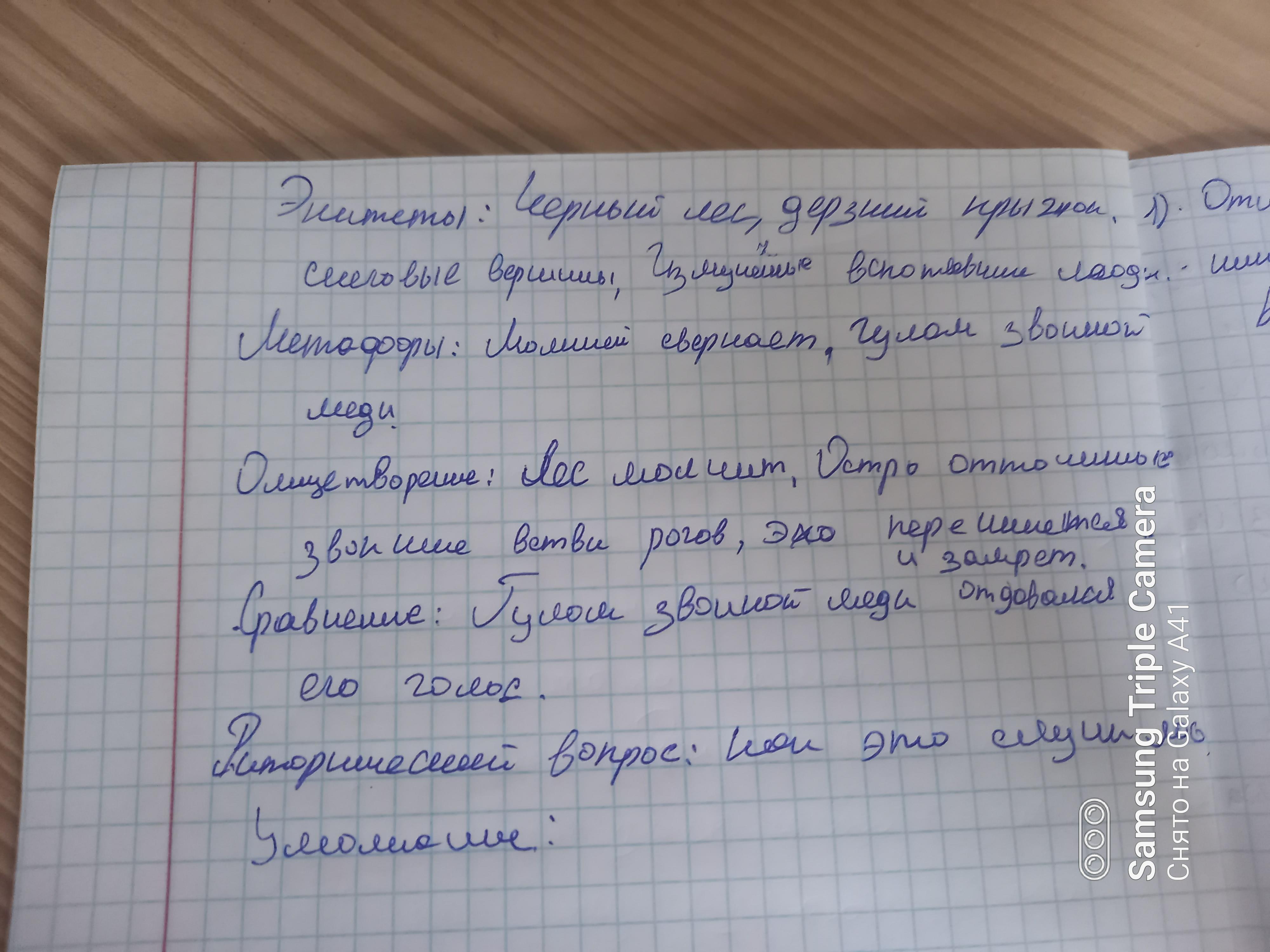Предмет: Литература,
автор: Аноним
Изобразительные средства Эпитеты Метафоры Олицетворения Сравнения Какой образ марала возникает благодаря этим средствам? Синтаксические фигуры Риторический вопрос Умолчание Как данные фигуры помогают нам лучше понять идею рассказа?
Приложения:

Ответы
Автор ответа:
0
Ответ:+- так
Объяснение:
Приложения:

Похожие вопросы
Предмет: Қазақ тiлi,
автор: adaeka200012345
Предмет: Українська мова,
автор: vikaers203
Предмет: Окружающий мир,
автор: gavrikov5klass
Предмет: Химия,
автор: lenaastahova006
Предмет: Русский язык,
автор: aiypaisha90